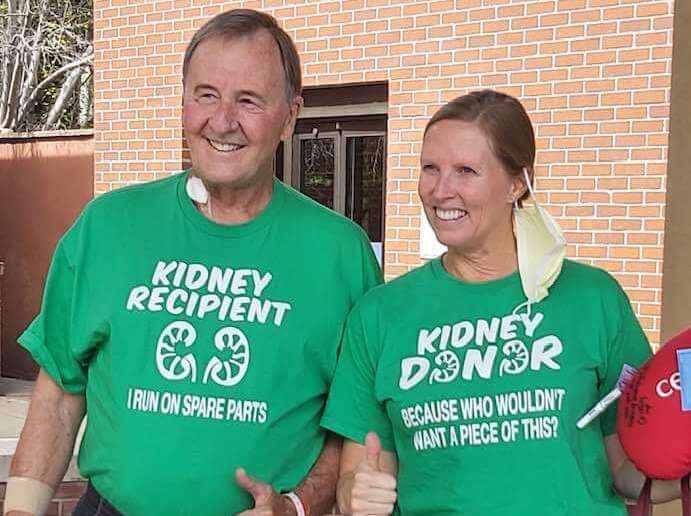Missy Franklin Bringing Awareness to Kidney Disease Detection for National Kidney Month

When Missy Franklin found out her father needed a kidney transplant, it opened up a scary world of uncertainty as her family had to figure out the next steps – and wait.
It took nearly three years for Richard Franklin to get a transplant, one that would ultimately come from Olympics swimmer Crissy Perham.
With March being National Kidney Month and Franklin has been championing the fight against autosomal dominant polycystic kidney disease (ADPKD), a genetic kidney disorder that her father has.
“I was so honored when Otsuka America Pharmaceuticals reached out to me to work alongside with them to bring awareness to ADPKD and how it impacted my family and what we learned on our journey and our encouragement of other families to have family health history conversations and educate yourself and have these conversations,” Missy Franklin told Swimming World. “It has been so powerful. I never thought that through my swimming career, I would end up becoming an advocate for a disease, but of course I never expected something to impact my family like this.
“It has been one of the most impactful things I have been a part of in my career.”
And it couldn’t have hit closer to home.
“It was end of 2021 that we learned my dad’s disease was rapidly progressing. We knew he had to get a live organ donor or be heading toward dialysis,” she said. “My father-in-law actually went through the process, but at the last step he was not a match, and he was devastated. He was so passionate about it. Then we opened up to everyone about the journey and looking for donors.”
That is when the slow process got even slower. Insurance can only process one possible donor at a time, and it takes time.
“It was a period of waiting for a miracle,” Franklin said. “I remember getting the call in May of 2022 that dad had a match and just sobbing. I couldn’t believe it. We didn’t find out that it was Crissy until the day of the surgery. To see the video of her and my dad meeting when they were getting wheeled in, it is still all so surreal.”
Now, Richard Franklin is playing with his granddaughter and continued to live.
“He has been so brave and so patient throughout the whole process. It is amazing seeing him do so well. I get emotional every time I see him with Caitlin. I think of Crissy every time because she literally gave this to us,” Missy Franklin said. “She is why I have a father and my mom has a husband and my daughter has a Bubba.”
Those moments make Missy want to share with others what they can do to help miracles happen.
“We are bringing awareness of ADPKD, and the main thing we want to bring to light is that it is hereditary. So we want to encourage everyone to have those conversations with your family on health history. We know it can make a huge difference. Early detection can make the difference, but these are difficult conversations. So talk to your health care providers,” she said.
Perham has gone on to swim open water races and get back to her active life after donating, something Franklin didn’t really think about until her family was going through this.
“I don’t think I realized the quality of live that living donors have after they give. Through Crissy, learning about the organ donor community but how amazing and active they are. They have groups climbing Kilimanjaro. You are still able to go on and have a full and active life,” she said. “Crissy now has two friends who have donated since she has. It is a ripple effect, and that can really make a difference.”
For more info, visit www.ADPKDQuestions.com.




A close friend has been waiting for a kidney transplant for six years and enduring dialysis three times a week. She only has one kidney because her other kidney was not healthy and had to be removed. She’s a patient with The Cleveland Clinic but no luck with a live or deceased donor. Can you please help her. Just saw you on GMA 3 today 7-17-2024
Thank You